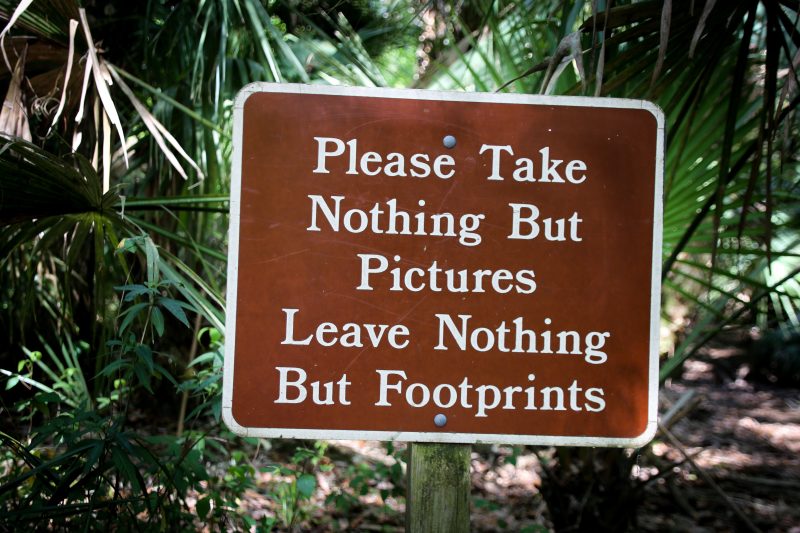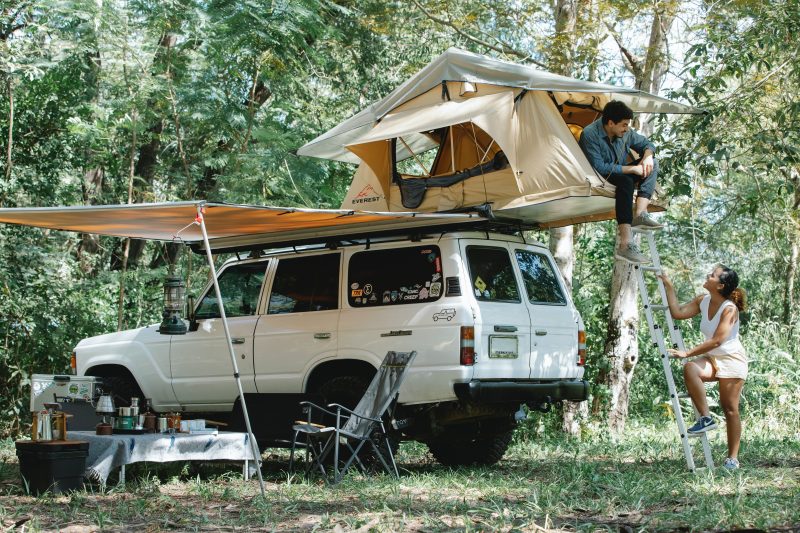“Earth is not a platform for human life. It is a living being. We are not on it, Burt part of it. Its health is our health” – Thomas Moore
“Leave nothing but footprints. Take nothing but pictures. Kill nothing but time.”
If you have spent reasonable time outdoors on any of your adventurous excursions, you should be no stranger to the saying above. As it is, nature commands our respect and if we and the future generations want to continue enjoying its bounty, we need to follow “The Leave No Trace” Principle.
WHAT IS LEAVE NO TRACE?
In a nutshell, the idea behind the leave no trace principle is to leave nature as unchanged by our presence as possible. This is so future generations can enjoy it as well. Essentially, this means to keep the wilderness wild and preserve much of it as we are able.
WHAT MAKES THE LEAVE NO TRACE PRINCIPLE SO IMPORTANT?
Today, hiking and camping are no longer seen as leisurely activities enjoyed exclusively by those who can afford it. With so many options available, both activities can be enjoyed even on a budget. As a result, more and more people have chosen to hike and camp in forests and wild areas which means that lessening our impact on our environment is paramount. Nature is for everyone, but in order for everyone to enjoy it, we need to take care of it properly.
All that considered, we need to educate ourselves about how to be responsible hikers and campers. While there is much to learn about responsible hiking and camping, learning about the Leave No Trace principle is probably where you should start.
THE SEVEN PRINCIPLES OF LEAVE NO TRACE
a.) Plan Ahead and Prepare
Planning ahead and preparing beforehand means researching trail information, weather forecasts, park rules, and trail conditions before your hike. It is imperative to do this as you are more likely to have a safe and more enjoyable experience. More importantly, you will mitigate and minimize damage to nature.
Essentially, this means plotting where your adventure will be and reading up on articles such campsites near you and brushing up on things you may need to know before you head out to camp.
b.) Travel and Camp on Durable Surfaces
When you choose a campsite or hiking trail, selecting durable surfaces such as rocks and gravel is paramount. Some campers prefer camping in alpine meadows while there are those who fancy pitching their tents on marshes. Whatever campsite you choose, be sure that you are adequately prepared for it.
c.) Dispose of Waste Properly
Leaving rubbish is inevitable after all, we need to wash and relieve ourselves. We also need to pack our garbages. However, in doing all these we must remember the Leave No Trace principle and ensure that whatever we leave behind gets packed up. That said, be sure that you are adequately prepared to do this by having a designated trashcan at camp for all of your refuse such as the Trasharoo Spare Tire Bin/Bag.
d.) Leave What You Find
Some humans have a knack for collecting which is understandably why some of us tend to take items we find at camp with us back home. However, refrain from doing this and leave natural and historical items where you find them. This is so the trail is just the way it was when you found it. Let others enjoy the experience like you did. More importantly, leaving things the way it was keeps ecosystems intact.
e.) Minimize Campfire Impacts
Many campers find that a camping activity absent a campfire would be incomplete. After all, this is where everyone gathers for the night and cooks their food. To ensure that you can minimize your impact, plan to cook your food over a stove, and not a fire which can easily spread. Campfires can be easily contained and controlled with the help of a Tani Camping Grill, a charcoal tray and a cowboy firepit grill.
f.) Respect Wildlife
The forest and wilderness are the wildlife’s home and it commands respect. As a responsible camper, you need to give them space so they can maintain their natural behavior. More importantly, this ensures you are safe as well as they may attack if provoked. So, give wild animals their space and if you have brought your dog camping with you, make sure it grants them space as well. Make sure that they do not harass or disturb wildlife.
g.) Be Considerate of Others
While having a hiking trail or campgrounds all to yourself may seem like the dream, it is not always possible. More often than not, you need to share the space and experience with others. That said, you need to be considerate of others as well. Do this by learning and following trail and camp etiquette. Respect how other people wish to have their experience and avoid from letting your experience negatively impact theirs.




